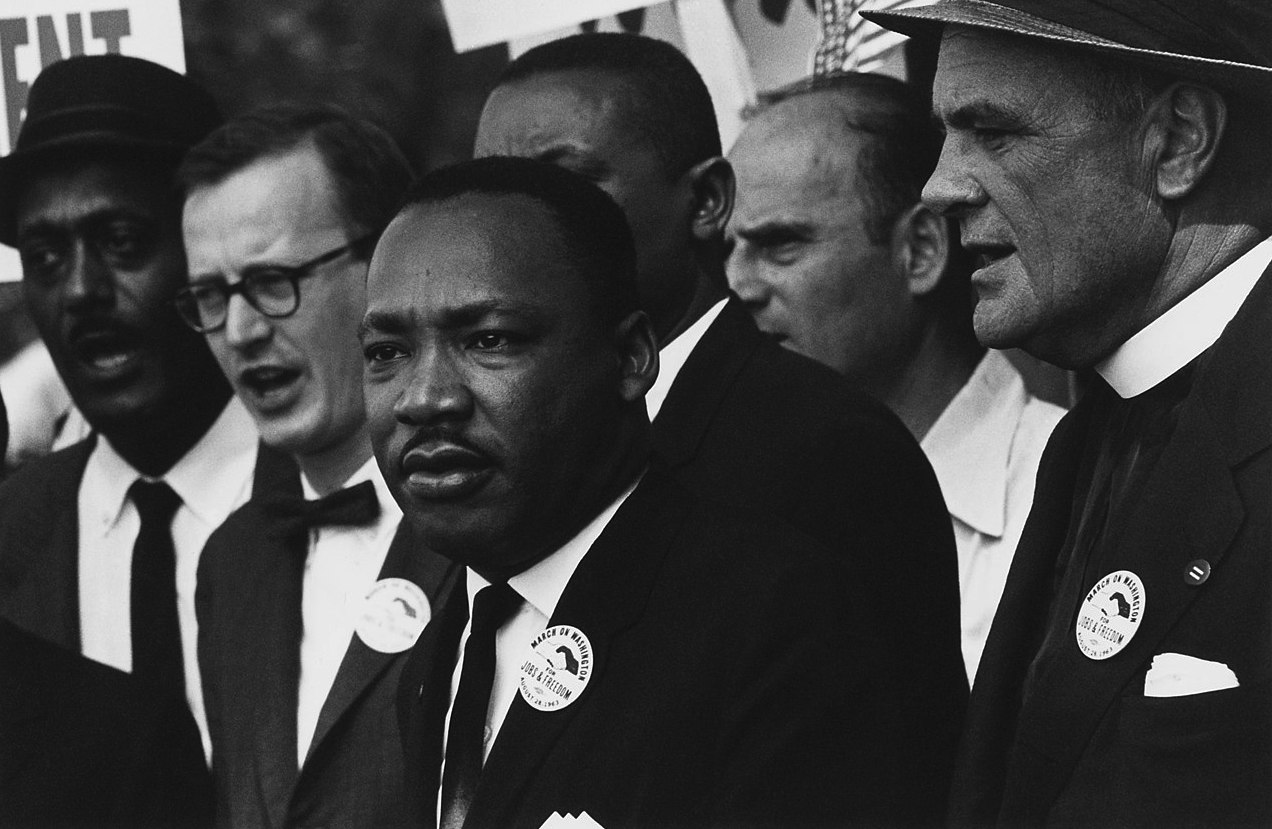If Martin Luther King Jr. were alive, he would have turned 90 years old on Tuesday. Instead, he was felled by an assassin’s bullet that terrible day, April 4, 1968. After a long-fought struggle, his birthday was finally celebrated as a national holiday in 1986. Many states, from New Hampshire to South Carolina to Arizona and beyond, delayed implementing the holiday, exposing the intractability of institutional racism.
Another King was in the news on MLK Jr.’s birthday this week: Steve King, a racist Republican congressman from Iowa. This King added to his extensive record of racist comments by telling The New York Times last week, “White nationalist, white supremacist, Western civilization — how did that language become offensive?” Commenting on the diversity of the new 116th Congress, he added, “You could look over there and think the Democratic Party is no country for white men.” His remarks have sparked a backlash from his own party, which stripped him of his committee assignments. Some Republican members of Congress, along with many Democratic members, are calling on him to resign, as are the editorial boards of prominent Iowa newspapers.
The House of Representatives, under Democratic control, passed a resolution — on Martin Luther King Jr.’s birthday — rejecting “White nationalism and White supremacy as hateful expressions of intolerance.” It mentioned Steve King’s comments to The New York Times, but did not expressly condemn him or his words. The resolution passed by a vote of 424-1. Steve King himself voted for the resolution.
That sole “no” vote was from Illinois Democrat Bobby Rush, one of the most senior members of the Congressional Black Caucus. Rush was active in the Student Nonviolent Coordinating Committee during the civil-rights struggles in the 1960s, and co-founded the Illinois chapter of the Black Panthers in 1968. “This resolution just restates the obvious. It does not address Steve King’s violent, vitriolic and rabid racism,” Rush said. “This Democratic resolution is an insult to the legacy of Martin Luther King Jr. as we recognize his birthday,” Rush continued. “We must proceed with a vote to censure him … to punish him for his bigotry and racism.”
As Steve King’s political career is collapsing under the weight of his racism, President Donald Trump’s silence about the Iowa congressman is deafening. When asked about Congressman King on the White House lawn this weekend, Trump, who is a notoriously voracious consumer of cable news, claimed: “I haven’t been following it. I really haven’t been following it.” Trump’s answer was reminiscent of his presidential campaign, when he disavowed knowledge of one of his endorsers, David Duke, the former grand wizard of the Ku Klux Klan. “Just so you understand, I don’t know anything about David Duke, OK?” Trump told CNN’s Jake Tapper. “I know nothing about David Duke. I know nothing about white supremacists.”
Trump has long supported Steve King. At a rally for King in West Des Moines in 2014, Trump described King as “a special guy, a smart person with really the right views on almost everything.” In 2013, speaking about the immigrant youth known as Dreamers, King said, “For everyone who’s a valedictorian, there’s another hundred out there who weigh a hundred and thirty pounds — and they’ve got calves the size of cantaloupes because they’re hauling seventy-five pounds of marijuana across the desert.” When endorsing the candidacy of Geert Wilders, a white nationalist politician in the Netherlands, King tweeted, “We can’t restore our civilization with somebody else’s babies.”
The racist words and deeds of Steve King, like those of one of his most powerful supporters, Donald Trump, stand in stark juxtaposition to the vision for which Martin Luther King Jr. struggled and died. On Nov. 11, 1959, Reverend King gave a speech at Iowa State University. “Human progress is neither automatic nor inevitable, he said. “Even a superficial look at history reveals that no social advance rolls in on the wheels of inevitability. Every step toward that goal of justice requires sacrifice, suffering and struggle; the tireless exertions and passionate concern of dedicated individuals.”
On this 90th anniversary of Martin Luther King Jr.’s birthday, let’s recommit to the eradication of racism and bigotry, whether in Iowa or in the White House.
Amy Goodman is the host of Democracy Now!, a daily international TV/radio news hour airing on more than 1,300 stations. She is the co-author, with Denis Moynihan, of The Silenced Majority, a New York Times bestseller. This column originally appeared on Democracy Now.
Photo: U.S. National Archives and Records Administration/Wikimedia Commons
Help make rabble sustainable. Please consider supporting our work with a monthly donation. Support rabble.ca today for as little as $1 per month!




